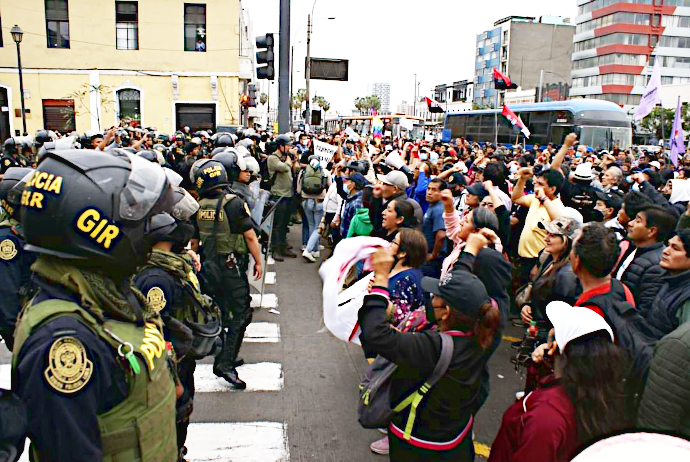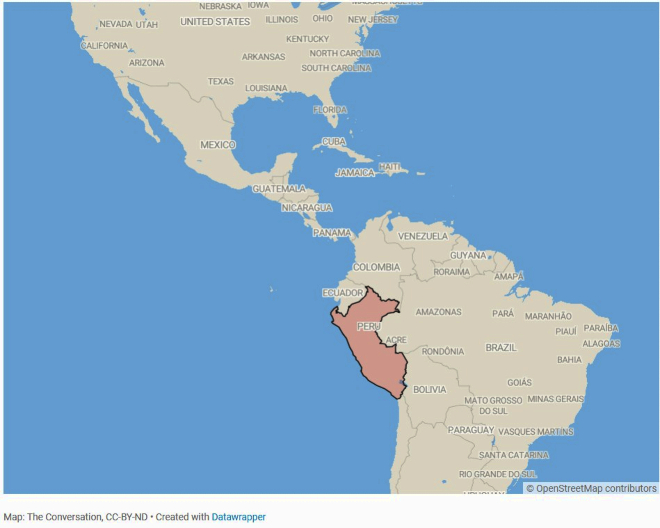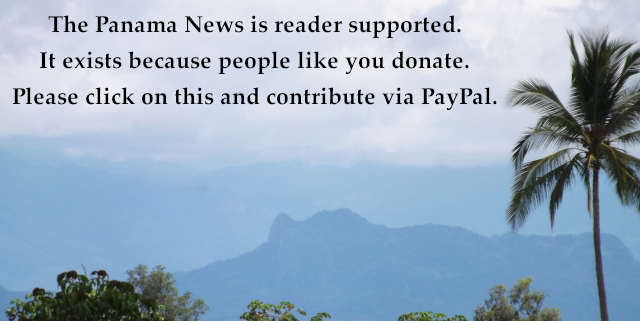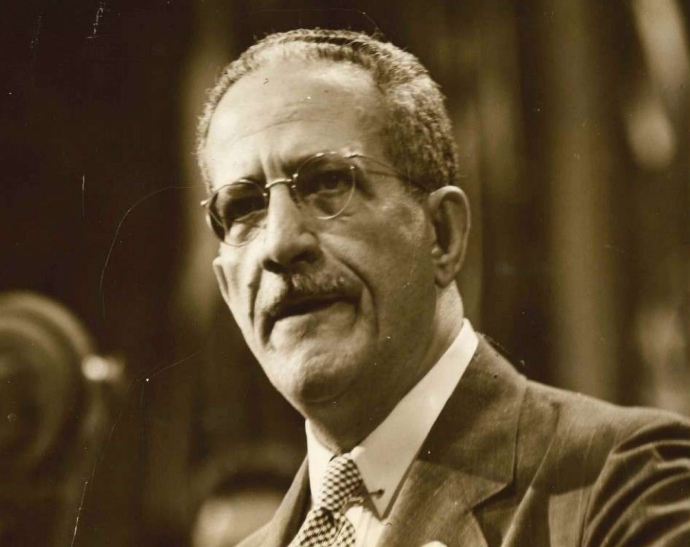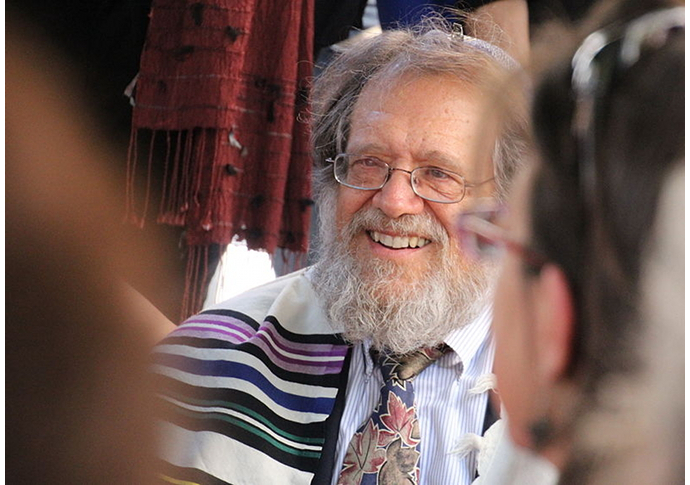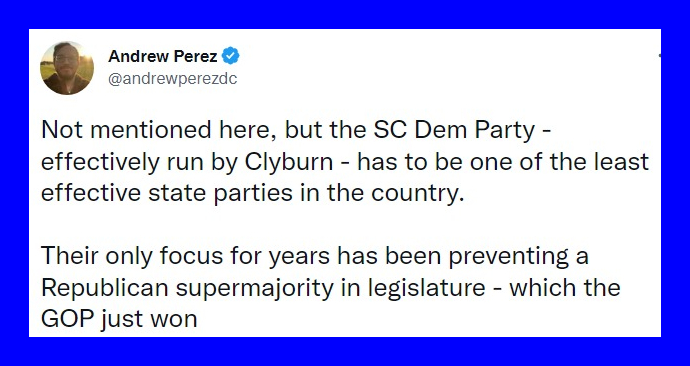Protesters demanding the dissolution of Congress and the convening of a constituent assembly to draft a new Peruvian constitution stream into Lima in the wake of Pedro Castillo’s ouster. Unattributed photo on the Kawsachun News Twitter feed.
Amid coup, countercoup claims – what
really went down in Peru and why?
by Eduardo Gamarra, Florida International University
Peru has a new president following the ouster of former leader Pedro Castillo at the hands of the country’s Congress.
His removal followed an attempt by Castillo to cling to power by dissolving a Congress intent on impeaching him. Castillo’s opponents accused him of attempting a coup – a charge his supporters similarly levied in regards to his removal from office. The day ended with the former president in detention.
The Conversation asked Eduardo Gamarra, an expert on Latin American politics at Florida International University, to explain the wider context of Peru’s political crisis – and what could happen next.
Can you talk us through the events of Dec. 7, 2022?
In a nutshell, President Pedro Castillo thought he was going to be impeached and tried to move ahead of lawmakers by closing down Congress. He said he intended to rule by decree and reform the country’s constitutional court and judiciary. In effect, he challenged the armed forces to choose sides.
But the plan backfired. He announced that he was closing Congress, but Congress refused to be closed down. Instead, lawmakers went ahead with a previously planned impeachment trial and overwhelmingly voted to remove him from power. The military for its part rejected Castillo’s ploy.
Castillo was later arrested on a charge of violating a constitutional order. He was replaced by former Vice President Dina Boluarte, who was sworn in as president. Peru’s first female leader intends to serve until 2026.
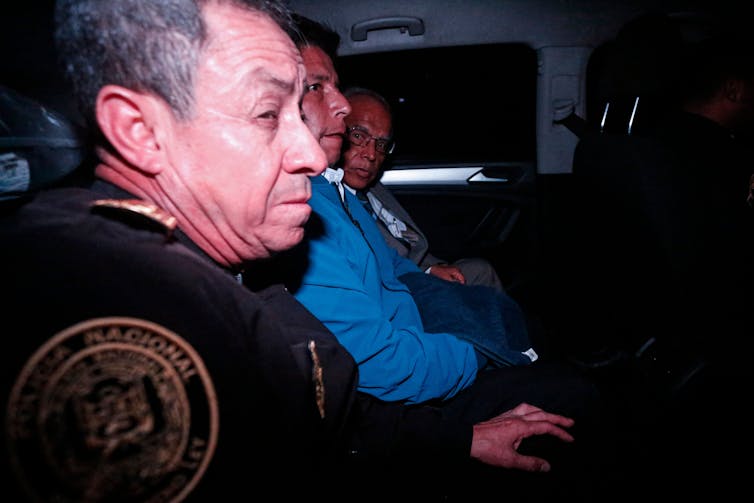 Former President Pedro Castillo was taken into custody. Renato Pajuelo/AFP via Getty Images
Former President Pedro Castillo was taken into custody. Renato Pajuelo/AFP via Getty Images
Behind all this was a competition of legitimacy between Congress and the president – and Congress won.
How did it come to such a crisis point?
That isn’t easy to explain, and the wider background and political system needs to be understood first.
Peru has a hybrid system, in which both parliament and the presidency split power and can act against each other. So constitutionally, the president can dismiss Congress and call for new elections, and, at the same time, Congress can impeach and remove the president. But there is some ambiguity, and there is a case to say Castillo exceeded his constitutional powers in this instance.
The point of having such a system is that when there is a crisis of government, it doesn’t necessarily mean there is a crisis of state. The prime minister can resign as head of a government, yet the president can remain in place for stability.
But in reality, it encourages instability. Congress has forced a president from office before. President Martín Vizcarra was removed from power in a 2020 impeachment. In fact, Peru has now had six presidents in the last five years. There have also been instances in the past of Peruvian presidents dissolving Congress. Famously, President Alberto Fujimori did this in 1992 in what was undoubtedly a coup d’état.
At the same time, what you have seen in Peru is a dismantling of the traditional party system. More than a dozen parties are now represented in Congress, which makes it hard for any one party to hold a majority.
In the case of Castillo, only around 15 members of Congress were from his party – a tiny minority in the 130-seat assembly. That made it hard for Castillo to form a strong base to push forward his agenda or protect him from impeachment proceedings.
Making matters of governance worse is the fact that there has been a collapse in trust for Peru’s political institutions and parties.
This all leads to an atomized political system – the old parties have disappeared, but no strong new parties have emerged. In this void have been individuals who have driven the political agenda, with no central force to govern cohesively.
Thrown into this is the political polarization that has affected much of the region, with the country increasingly split between the left and the right.
But it gets worse. Not only is the country polarized politically, it is split by ethnicity, region and class.
And this contributed to Castillo’s downfall?
Yes. From the beginning of his term the leftist former teacher was attacked by his many opponents in Congress for a variety of alleged grievances. He has governed over a worsening economy and faces a slew of corruption charges. Indeed, Castillo had already survived two attempts to impeach him before the events of Dec. 7, 2022 – and he only came to power in July 2021.
Recently, he was accused of treason after suggesting in a CNN interview that he would consider giving landlocked Bolivia access to the Pacific Ocean. Suggesting that an apparent off-the-cuff comment amounted to treason might be pushing it. But on top of that, there were serious accusations of corruption against the president. By my count, there were five serious attempts by Congress to bring about malfeasance trials against Castillo.
How has he responded?
Castillo initially was hoping to get the backing of the Organization of American States (OAS) and tried to convince the regional body, which is tasked with, among other things, upholding democracy in the region, that his own Congress was trying to remove him in what he said was a coup. That may have worked – after all, he was a legitimately elected leader.
But before the OAS was due to hear a report into the allegations, things escalated, culminating in Castillo’s ouster.
So, both sides are claiming a coup? Any truth in those claims?
That is a discussion that will likely go on for a long time. Peru’s left will no doubt frame Castillo’s removal as a coup, while anti-Castillo politicians will insist it wasn’t. They will claim they were heading off a coup attempt from Castillo who, by dismissing Congress, was setting the stage to become a dictator-like leader.
My sense is what happened was Castillo was desperate and trying to defend himself from a Congress that was over-zealous about getting rid of him. But this is not to say they do not have grounds for doing so, as there does appear to be credible evidence of corruption.
Having said that, is that enough to say it was a coup – especially when it was brought about through constitutional measures? Perhaps not.
How have Peruvians reacted?
There have been some demonstrations, with people out on the street. But it has been so disorganized, it is hard to say who has been protesting for what and in support of whom. It also hasn’t developed into widespread protests.
Has there been concern from regional leaders and the United States?
We have seen the usual international appeals for calm, and the OAS has expressed its called for national unity.
Meanwhile, leftist leaders in the region have expressed support for the ousted Castillo. Brazil’s president-elect Luiz Inácio Lula da Silva expressed concern but said it was a “constitutional removal.” Others, such as Bolivia’s President Luis Arce framed Castillo’s ouster as the “overthow” of a democratically elected government.
There has been very little comment of consequence from the U.S. other than welcoming the new president and urging democratic order. Both the U.S. and regional leaders are likely hoping that the political and economic instability that has plagued Peru in recent years ends. The concern is that ongoing chaos could affect regional stability, and also affect Peru’s position as a trading partner – the country is a large producer of copper and silver, among other mineral resources.
What could happen next?
There are a lot of ways this could play out. The new president has already called for a political truce and a government that represents all parties.
But whether she will be allowed to effectively govern given her lack of a mandate is in question. Boluarte is a legitimate president based on the constitutional process that saw her put in place. But she has no legitimacy in the sense of being democratically elected. She was also very closely aligned with Castillo.
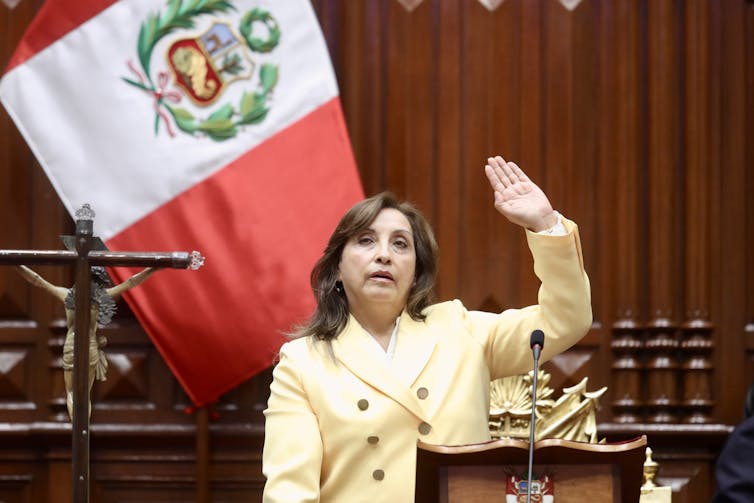
Dina Boluarte, Peru’s sixth president in five years. Congress of Republic of Peru / Anadolu Agency via Getty Images
Perhaps the best thing she could do is call immediately for general elections so the people can have a say in what happens next.
But that could also be a risk, given the degree of political polarization in Peru. The country has seen a rise in xenophobic and nationalistic sentiment, due in part to high levels of immigration into the country.
Peruvians want a government that can actually govern. The fear, however, is that the country’s current conditions – economic and political instability mixed with polarization and growing xenophobia – could lend itself to the emergence of a far right populist.![]()
Eduardo Gamarra, Professor of Politics and International Relations, Florida International University
This article is republished from The Conversation under a Creative Commons license. Read the original article.
Contact us by email at fund4thepanamanews@gmail.com
To fend off hackers, organized trolls and other online vandalism, our website comments feature is switched off. Instead, come to our Facebook page to join in the discussion.
These links are interactive — click on the boxes

